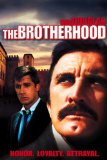| Reviews & Columns |
|
Reviews DVD TV on DVD Blu-ray 4K UHD International DVDs In Theaters Reviews by Studio Video Games Features Collector Series DVDs Easter Egg Database Interviews DVD Talk Radio Feature Articles Columns Anime Talk DVD Savant Horror DVDs The M.O.D. Squad Art House HD Talk Silent DVD
|
DVD Talk Forum |
|
|
| Resources |
|
DVD Price Search Customer Service #'s RCE Info Links |
|
Columns
|
|
|
Brotherhood (1968, Warner Archive), The
"Our mama, the Family, is always alive."
Well...that one sheet probably didn't help, either. Warner Bros.' fun Archive Collection of hard-to-find library and cult titles has inexplicably dusted off an old 2002 Paramount disc release (why, Archive Collection?) of The Brotherhood, the 1968 Mafia drama from Paramount, starring Kirk Douglas, Alex Cord, Irene Papas, Luther Adler, Susan Strasberg, Murray Hamilton, and Eduardo Ciannelli. Scripted by Lewis John Carlino and directed by heavyweight Martin Ritt, The Brotherhood is barely remembered today as a minor footnote in the far more illustrious Godfather saga: its total failure at the box office was a sticking point in 1971 with some Paramount executives who doubted whether another mob movie like The Godfather would succeed with audiences. Taken on its own outside that context, The Brotherhood is an uninteresting minor/major effort which unfortunately suffers from a too-languid, hands-off approach, and a story about the Mafia becoming big business that was old hat even in 1968. No extras for this ported-over widescreen transfer.
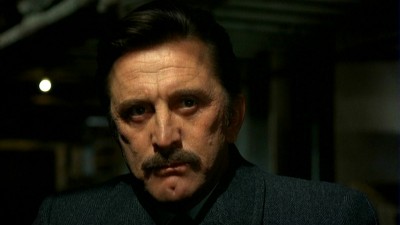
Sicily, 1968. Ex-patriot gangster Frank Ginetta (Kirk Douglas) waits in a mountain-top ruin to see who has been sent from America to assassinate him. When he realizes his younger brother, Vince (Alex Cord), has come for a surprise visit, Frank is overjoyed. Frank's wife, Ida (Irene Papas), however, warns Frank that maybe Vince's visit is no coincidence. Flashback several years to New York City, where crime boss Frank oversees discharged serviceman Vince's wedding to Emma Ginetta (Susan Strasberg), the daughter of Dominick Bertolo (Luther Adler), who, along with Frank, is a don on the Syndicate's ruling committee. Other committee members are there, including Irishman Jim Egan (Murray Hamilton), Jew Sold Levin (Alan Hewitt), and Jake Rotherman (Val Avery)--all of whom needle loyal, sentimental Frank about his inviting the old "Moustache Petes" like Don Peppino (Eduardo Ciannelli), the old-school gangsters who no longer hold any significant power in the modernized Syndicate. Frank assumes that college-educated Vince will take a job with some corporation, but out of the blue, Vince asks to come back "in," which delights Frank...until the older brother realizes that accountant Vince-- who holds no such romanticized, nostalgic view of the kind of outdated, old-fashioned mob rule that willfully out-of-touch Frank embodies--is assuming a superior position in the committee, thanks to his father-in-law, Dom Bertolo. Frank, already at odds with the committee over his stubborn refusal to embrace new, more "corporate" methods of making money, puts his foot down when Vince offers to "button" for a new scheme involving bilking the government over military electronics contracts, a refusal that will set into motion a series of violent betrayals for all involved.
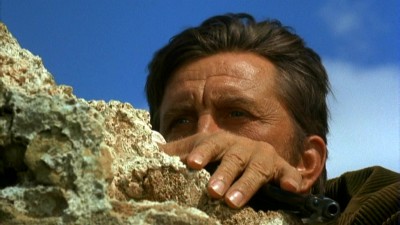
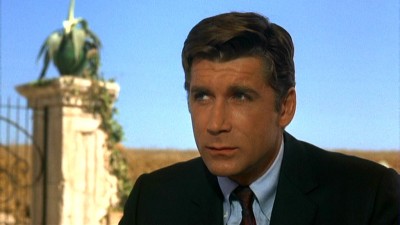
Before briefly getting to The Brotherhood, I must say I'm stumped as to why Warner's Archive Collection would release this title. The Archive was originally set up to give movie collectors a shot at owning titles that were rarely screened on television or unavailable on home video. So...why is the Archive going back and re-releasing admittedly minor titles like The Brotherhood, which already saw a disc release from Paramount some 11 years ago (just from a marketing standpoint, the Archive couldn't make this release stand out by ditching Paramount's lame cover art and do what it usually does: use the original one-sheet poster art to grace the disc holder's cover)? Don't you think anyone who was really into this title already bought it back in 2002? Is there really a market out there that insisted this largely forgotten title be brought out again...with absolutely no extras to possibly entice them to double-dip? And even if there is some minute untapped reserve of viewers out their pining for The Brotherhood again...you're telling me there aren't any other cult or library titles under Warner's control that still haven't seen the light of day on home video, and which deserve a place in line in front of The Brotherhood? A weird way to run a railroad.
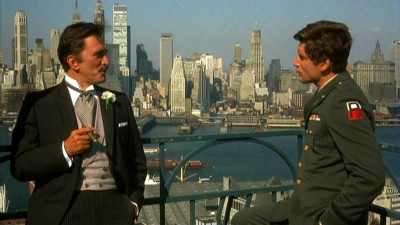
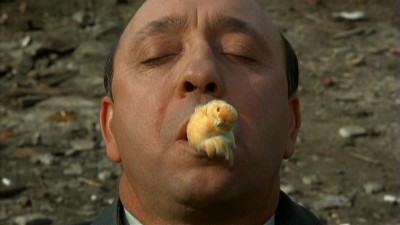
As for The Brotherhood, it's competent in a glossy-but-stilted way, I suppose...but it's not very exciting or particularly illuminating, suffering not only in comparison to Coppola's iconic masterpieces, but also against even minor, if energetic, contemporary B mob movies, like The St. Valentine's Day Massacre or The Valachi Papers. Since it's known today primarily for its box office failure almost influencing Paramount not to go ahead and film bestseller The Godfather, it's fair to ponder why The Brotherhood bombed with audiences. With today's hindsight, though, it's tough to figure out why anyone thought the finished project would do well in the first place.
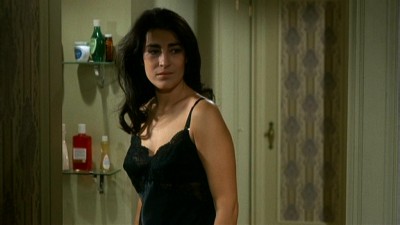
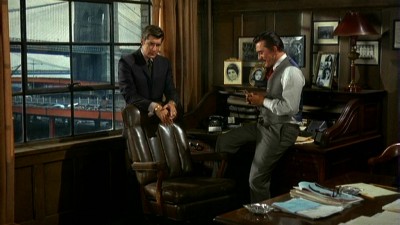
First and foremost, The Brotherhood's storyline is far too familiar to be markedly compelling even for 1968 audiences, let alone today when we've seen so many similar variations of this mob story. The Brotherhood's notion that the Mafia was suddenly undergoing a modernization effort was already recognizable B gangster movie fodder since the early 1950s, with the added problem of the story's central fulcrum being seriously out of whack: we're supposed to sympathize not with Cord's desire to turn La Cosa Nostra into IBM, but with Kirk's "old ways" of killing and robbing people...when the movie refuses to show what a bastard Kirk had to be to get where he is in "the Family." Why would screenwriter Carlino (interesting, intriguing work like The Great Santini, The Mechanic, A Reflection of Fear, and Resurrection) and director Ritt (classics such as Hud, The Spy Who Came in from the Cold, Hombre, and Sounder) try everything they can to make us like and root for Zorba the Italian Kirk over The Man in the Grey Flannel Cement Overcoat Cord, as if the movie's dramatic conflict was strictly "either/or," with no shades of gray? The Brotherhood reduces the morally and ethically problematic theme of chronicling the rise of one murderous way of stealing over an older method, to the simplistic level of facile, one-note melodrama, as if kindly, earthy, killer Kirk was an old bookkeeper getting shoved out by Univac operator Cord because he just doesn't understand all those new-fangled keys and buttons and lights (blank, boring Cord shows here why he never made it in movies, while Douglas gives an entertaining--if surface--performance typical of his career's final A-list leading man projects).
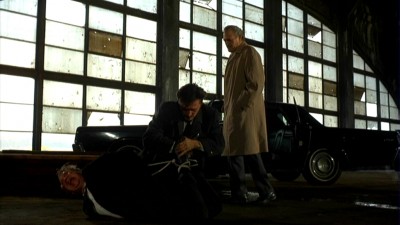
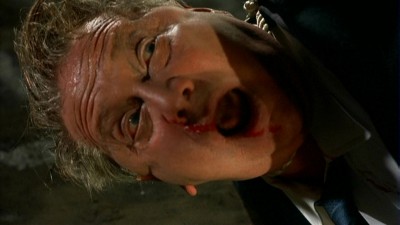
Perversely, director Ritt's measured, respectful, calm approach is absolutely dead wrong for this supposedly passionate material, resulting in a talky, still-born, studio-bound, studio-lit drama that completely fails to realistically recreate--in spirit as well as in the sets--the Mob underworld (it's got that late 60s Warner studio look that was better suited to something light, like Harper). Even the location shooting is numb; compare Ritt's Sicily to Coppola's: you can feel the heat and smell the olives in the latter's. At least give credit to directors like Roger Corman and Terence Young for injecting into their above-mentioned B mob pictures some juice, some sense of exploitative charge. Here, in The Brotherhood, what complexities of moral and institutional betrayal writer Carlino can't convey in the screenplay, Ritt fails to at least counter with some old-fashioned gangland excitement (composer Lalo Schifrin's snazzy score occasionally pops up, promising some Bullitt-like excitement...only to fade away just as quickly when nothing happens on screen). Too much talk in a gangster movie is fine if it's compelling talk (after all, there's far more "talk" in The Godfather, Parts I and II, than straight "action"). But boring, cliched, overly familiar talk coupled with no action? You should sleep with the fishes for perpetrating that kind of crime.
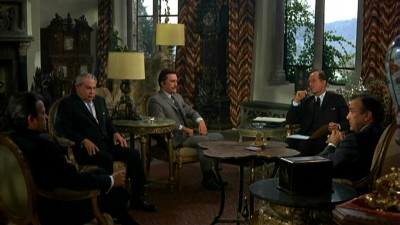
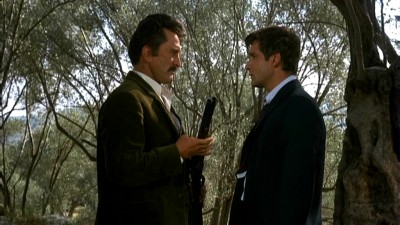
The DVD:
The Video:
The anamorphically-enhanced, 1.85:1 widescreen transfer for The Brotherhood looks pristine, with a bright, super-sharp image, and little in any imperfections or screen anomalies.
The Audio:
The Dolby Digital English split mono audio track is fine, with little hiss and a decent re-recording level. A French language track is also available, and English subtitles, as well.
The Extras:
No extras for The Brotherhood.
Final Thoughts:
Too familiar, too tame. The Brotherhood flopped with movie audiences back in 1968 not because, as some Paramount executives came to believe, viewers didn't want to see mob pictures. It flopped because it's an inherently flawed and rather impersonal effort, with a sketchy, uneventful script, indifferent direction, and routine performances (at best). Fans of the genre may want to rent, but everyone else can skip The Brotherhood.
Paul Mavis is an internationally published movie and television historian, a member of the Online Film Critics Society, and the author of The Espionage Filmography.


|
| Popular Reviews |
| Sponsored Links |
|
|
| Sponsored Links |
|
|
| Release List | Reviews | Shop | Newsletter | Forum | DVD Giveaways | Blu-Ray | Advertise |
|
Copyright 2024 DVDTalk.com All Rights Reserved. Legal Info, Privacy Policy, Terms of Use,
Manage Preferences,
Your Privacy Choices | |||||||









